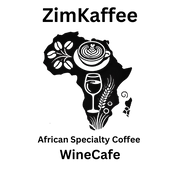

Africa's Top 10 2025 Season Coffee-Producing Nations
Mar 17, 2025
What makes your morning cup of coffee truly special? Beyond its rich aroma and bold flavors lies a story that begins in Africa, the birthplace of coffee. While you might be enjoying your latte in a café halfway across the world like at ZimKaffee in the heart of Zurich, some of the most prized beans are cultivated in Africa's highlands and forests. From Ethiopia, the heart of the coffee origin story, to Malawi’s rising coffee culture, the continent is a treasure trove for coffee lovers.
In this article, we highlight Africa’s top 10 coffee-producing countries based on the latest data from the World Economic Forum and other reliable sources, highlighting each country’s unique contributions to the global coffee industry.
Starting from the lowest rated....
10. Malawi – 25,000 Tons
While Malawi ranks last on this list, its coffee production has been steadily growing. Known for its high-altitude coffee farms, Malawi produces Arabica beans celebrated for their mild acidity and fruity flavor profile. The country's coffee industry is concentrated in the Thyolo, Mulanje, and Mzuzu regions. Despite climate change challenges, Malawian coffee farmers are adopting sustainable practices to ensure growth. Though small-scale, Malawian coffee has gained a global following for its distinct taste.
9. Cameroon – 28,100 Tons
Cameroon’s coffee industry is diverse, offering both Arabica and Robusta varieties. Arabica is cultivated in the highlands of Bamenda and Buea, while Robusta thrives in the coastal and forest regions. Known for its rich, earthy flavors, Cameroonian coffee has a distinct character. However, outdated farming techniques and market challenges have caused production fluctuations. Efforts are underway to rejuvenate the sector, including the introduction of cooperatives and government support for farmers.
8. Democratic Republic of Congo (DRC) – 50,000 Tons
The DRC produces some of the most intriguing coffee in Africa, particularly specialty Arabica beans grown around Lake Kivu. Known for their floral and citrusy notes, DRC coffee is a favorite among connoisseurs. Despite its potential, the coffee sector faces hurdles, including political instability and infrastructure issues. However, organizations are working to rebuild the industry, empowering farmers and improving processing techniques to enhance the quality of Congolese coffee.
7. Burundi – 60,000 Tons
Burundi’s coffee is synonymous with high-quality Arabica beans, specifically the Bourbon variety, which thrives in the country's nutrient-rich volcanic soil. Burundian coffee is renowned for its bright acidity, fruity flavors, and tea-like qualities. With over 600,000 families relying on coffee farming for income, the industry is a crucial part of the economy. Despite occasional political unrest, the coffee sector remains a beacon of hope, with a strong focus on quality over quantity.
6. Rwanda – 76,000 Tons
Often called the “Land of a Thousand Hills,” Rwanda is a powerhouse of specialty coffee. Its Arabica beans, particularly the Bourbon variety, are known for their sweetness, citrusy notes, and creamy texture. Rwanda’s strict focus on quality control has earned it a reputation for producing some of the world’s finest coffees. Coffee production is vital to Rwanda’s economy, employing hundreds of thousands of smallholder farmers. Post-genocide recovery efforts have further strengthened the industry, making Rwandan coffee a symbol of resilience.
5. Kenya – 120,000 Tons
Kenya is world-famous for its bold flavors, including notes of blackcurrant, berries, and citrus. Grown in the high-altitude regions of Mount Kenya and the Aberdare Range, Kenyan Arabica beans benefit from fertile volcanic soil and ideal climate conditions. The country’s auction system ensures farmers receive competitive prices for their premium beans. Coffee grading is an art in Kenya, with grades like AA and AB signifying top-quality beans. Kenyan coffee continues to set a global standard for excellence.
4. Tanzania – 150,000 Tons
Tanzania’s coffee industry thrives under the shadow of Mount Kilimanjaro, where high-altitude Arabica beans are cultivated. The country also grows Robusta, particularly in the Lake Victoria basin. Tanzanian coffee is known for its rich, chocolatey flavors with hints of fruit and wine. Coffee farming supports over 400,000 households, making it a significant contributor to the economy. Efforts to modernize farming techniques and improve quality control ensure Tanzania remains a key player in the global coffee market.
3. Côte d'Ivoire – 260,000 Tons
Côte d'Ivoire is a major producer of Robusta coffee, which is widely used in instant coffee blends. Known for its nutty and chocolatey flavor, Ivorian coffee is primarily cultivated in the western and southern regions of the country. Although the sector has declined due to political instability, revitalization efforts are underway. Côte d'Ivoire’s coffee culture is deeply intertwined with its traditions, with many locals enjoying strong, dark brews.
2. Uganda – 393,900 Tons
Uganda is a giant in the African coffee scene, producing both Robusta and Arabica beans. Robusta, indigenous to Uganda, thrives in the country’s lowlands, while Arabica grows in the high-altitude regions near Mount Elgon and the Rwenzori Mountains. Ugandan coffee is known for its deep, earthy flavors with hints of chocolate. The industry supports millions of farmers, making it a cornerstone of Uganda’s economy. Government initiatives, such as the Coffee Roadmap, are helping to boost production and global recognition.
1. Ethiopia – 472,000 Tons
Ethiopia, the birthplace of coffee, holds the top spot as Africa’s leading coffee producer. The country is famous for its unique varieties like Yirgacheffe, Sidamo, and Harrar, each offering distinct flavor profiles ranging from floral and citrusy to rich and wine-like. Coffee is deeply embedded in Ethiopian culture, with traditional coffee ceremonies symbolizing hospitality. Ethiopia’s highlands provide the perfect conditions for Arabica beans, and over 15 million people depend on coffee farming for their livelihoods. The country’s coffee heritage and unmatched quality cement its global reputation as a coffee powerhouse.
In Conclusion
Africa’s coffee industry is as diverse as the continent itself, with each nation contributing unique flavors, traditions, and innovations to the global market. Whether you enjoy the floral elegance of Ethiopian Yirgacheffe, the bold richness of Kenyan AA, or the smooth chocolate notes of Tanzanian beans, African coffee offers something for every palate.
Yet, the true marvel lies in discovering coffee from regions that are lesser-known on the global stage—like Zimbabwe. A cup of Zimbabwean coffee is a rare experience, a product of passion and perseverance in an industry that faces challenges yet continues to thrive. Each sip tells a story of resilience, craftsmanship, and the unwavering spirit of African coffee farmers.
Next time you sip on your coffee, take a moment to appreciate the journey from an African coffee farm to your cup!





